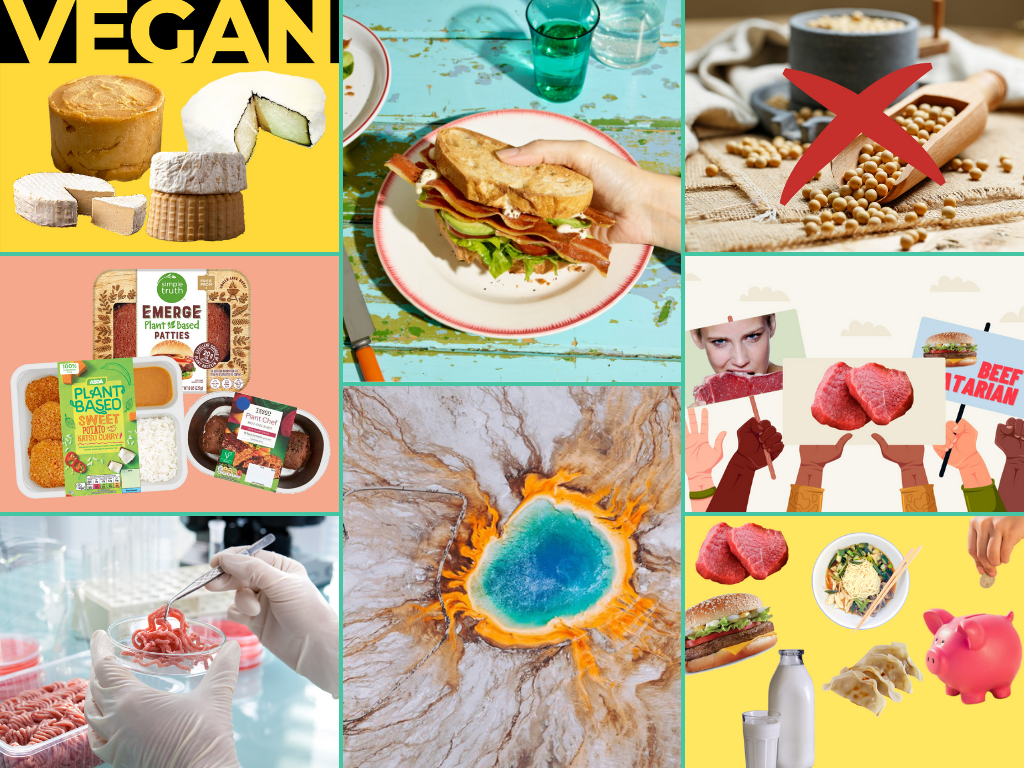11 Mins Read
2020 was a challenging and unexpected year, and most of the world was brought to its knees by the Covid-19 pandemic. It’s been almost 12 months of bad, sad news and traumatic moments. But for the alt protein industry, 2020 has been an incredible year! While the pandemic made life far more difficult for billions, it also brought upon a renewed focus on our broken global food systems, ushering in the rise of food tech companies on a mission to fight the climate crisis with nutritious, slaughter-free foods that eschew industrial agriculture. The alt protein industry has progressed leaps and bounds and is now officially mainstream. So what comes next? Below, for the first time since we began, Green Queen shares our predictions for the top 13 alternative protein trends to look out for in 2021, which looks to be another hugely exciting year.
1) Healthier & Less Processed Plant-Based Meats Are Here
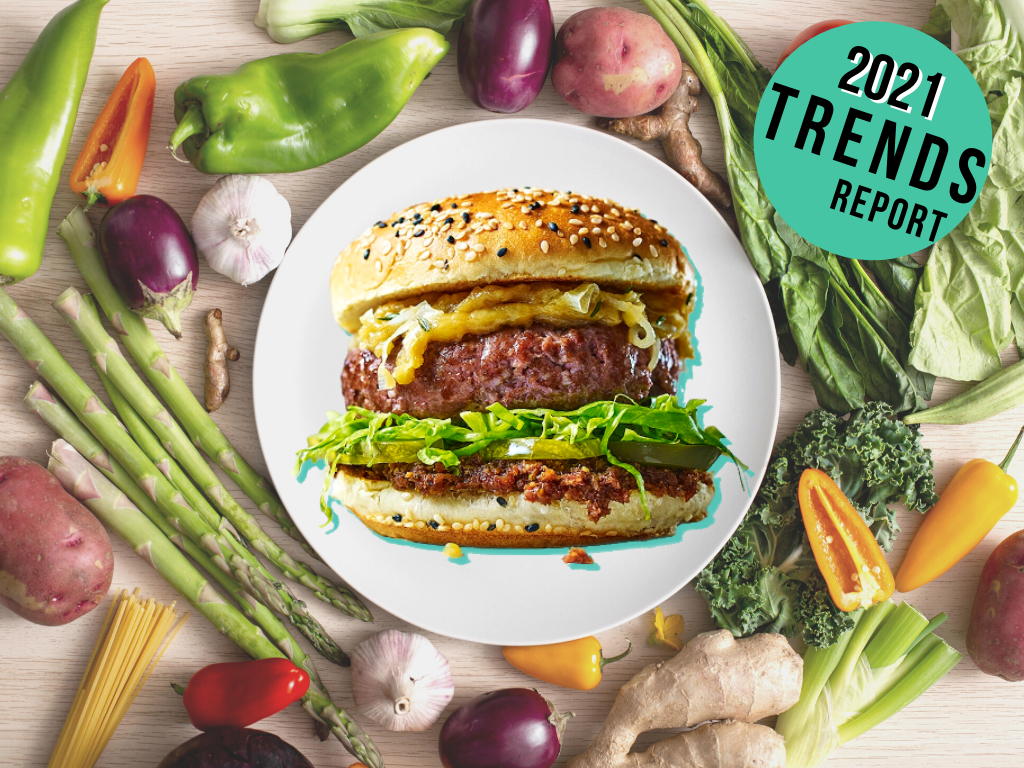
Plant-based food consumers are now savvier than ever and they want healthier alternative foods. That means: shorter ingredients labels, “cleaner” products, less fat and fewer additives. A few brands are already leading the way, such as Spanish food tech Heura Foods, who claim to have launched the world’s healthiest burger using olive oil as a key ingredient, and Daring Foods, whose plant-based chicken contains only 5 ingredients. Meanwhile Beyond Meat also released 2 healthier versions of its plant-based burger reducing the saturated fat content per patty by 35% to 55% respectively. This trend will become increasingly important as shoppers become less forgiving of meat alternatives and allow newer players to carve out their niche on the shelves, so the first generation brands need to innovate on this front, and fast.
2) The Age Of Cheaper Plant-Based Foods
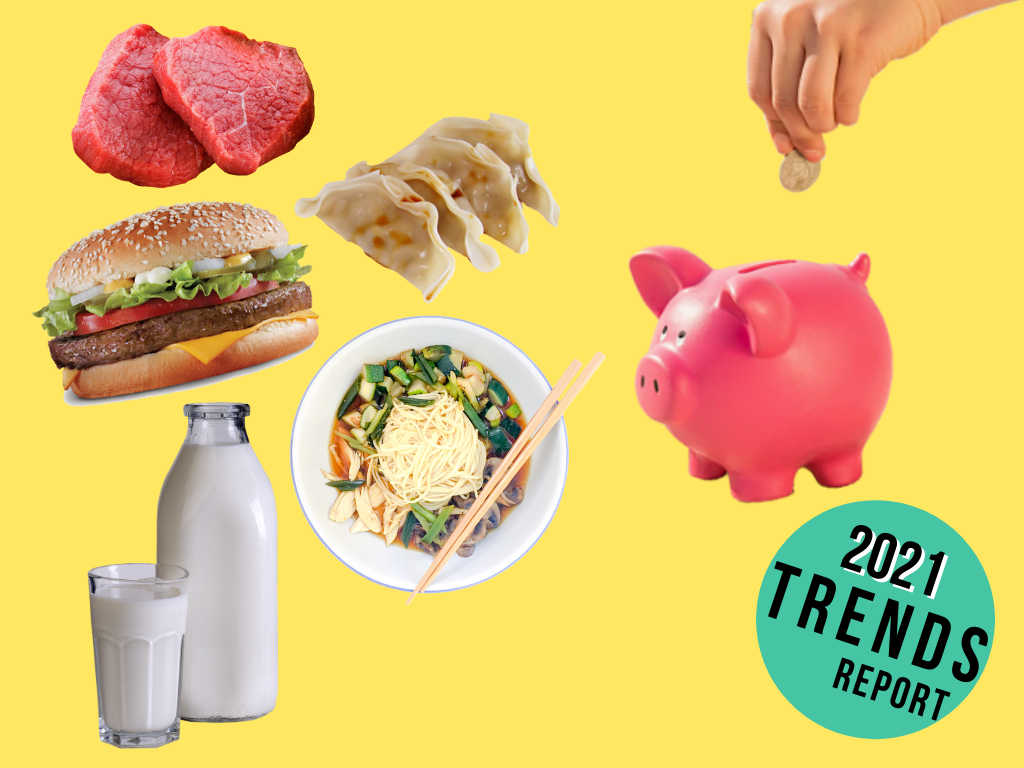
Last year we predicted that plant-based foods would go mass. This happened and then some. 2020 is the year of Covid, but it’s also the year that alternative proteins went mainstream (in part because of the pandemic). The sector dominated headlines and supermarket aisles. Next up: the price needs to come down. Way down. While startups like India’s GoodDot have already reached price parity with animal equivalents in their home country, most existing plant-based food products are still priced at a premium, comparable to say organic produce or grass-fed meat. If we’re going to truly make an impact on carbon emissions, we need tens of millions of people to switch to plant alternatives- currently, budget constraints make that harder to do. Luckily increased demand means more supply and lower prices so as long as the sector continues to trend upwards, then things should become much more affordable.
3) Co-Packers Scale Up: Alt Protein Sector Welcomes More Manufacturers, Production Facilities & Plants

While it’s fantastic to see the surge of new plant-based alternative brands launching weekly, any Econ 101 student can tell you that demand without supply doesn’t work. One concern I’ve had this past year is how few copackers and private label manufacturers there are globally (startups ask us for help with this all the time and the truth is, we wish we had a bigger database). All these new brands need plants (get it!) to help them scale so we’re predicting a boom in B2B vegan food production facilities across all geographies (and more investors dollars backing them) such as Plant&Bean‘s new UK-based 55,000-tonne-capacity factory and Indian co-manufacturer BVeg Foods.
4) Cell-Based Meat Matures: Get Ready For Animal-Free Food
Last year we told you cultured everything was coming. We were right. As of 2020, there are now well over 100 cultivated meat, seafood & dairy companies from South Africa to India to Finland to Israel working on cell-based foods and cell-based enabling technologies. Well until less than a month ago, naysayers could write off cell-based as some cockamamie Silicon Valley pipe dream. Critics spoke of the unsurmountable cost of cellular meat, the regulatory challenges, the impossible long road to commercialization. Well, they’ve been silenced. Eat Just, the pioneering food tech most well known for its mung bean egg alternative, has just made history (astrophysicist Martin Rees called it a major scientific breakthrough) by getting the first government approval for its cultured chicken bites (chapeau, Singapore), made the first-ever commercial sale of cultured meat and served paying guests at 1880 Restaurant in the Lion City. Other records: Israel’s Supermeat was officially the first-ever cell-based startup to serve diners chicken burgers (unlike Eat Just, there was no monetary exchange though) back in November and Aleph Farms (also Israel) got the first head of government (Prime Minister Benjamin Netanyahu) to taste cultured meat. Investors take note: start funding these winners because this bioreactor revolution is happening.
5) Precision Fermentation Tech Grabs The Spotlight

Surprisingly, the third pillar of alternative protein tech, namely precision fermentation, has been slower to achieve lift off. While a few big names (mostly in the U.S.) have dominated headlines and investment rounds (Perfect Day, Clara Foods), there are still very few (in the entire APAC region, we only have one such company). Why surprising? Well, unlike cell-based tech, precisions fermentation is something we know well and have been doing for decades (think synthetic insulin). There are few to no regulatory hurdles. There are lots of food scientists around who understand how to harness the tech. And a great deal of people we’ve spoken to believe fermented alternatives are far closer to the animal version than plant-based ones- I’ve lost track of how many people have told me that Perfect Day’s alternative is a dead ringer for cow’s milk. What this means is the market conditions are close to ideal for this undervalued alt protein process to soar- expect a whole lot more attention, investment, innovation and new startups in this space.
6) Better, More Eco Responsible Packaging For Plant-Based Products
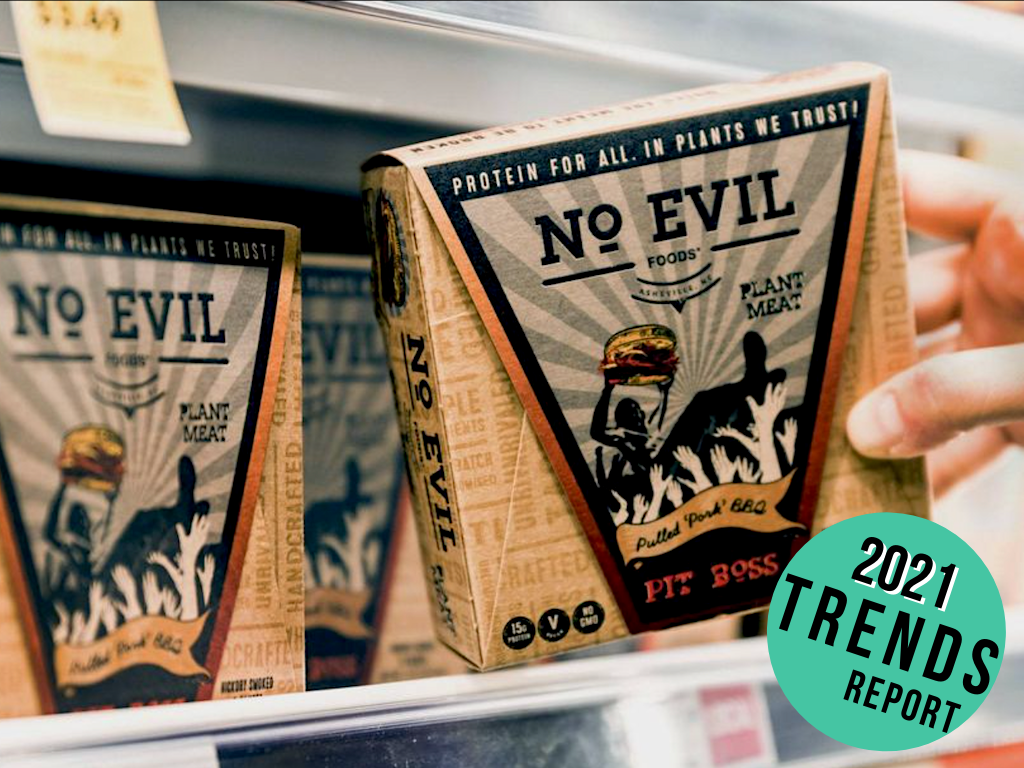
Sustainability is a 360 degree affair. We’re called Green Queen and not Veg Queen for a reason. It’s all connected people! We gotta eat less meat, yes! But we also gotta quit plastic and embrace reusables and stop shopping so darn much. There isn’t a plant-based 2.0 brand out there that doesn’t advertise their climate-change-fighting mission. And they should definitely shout about it: their products come in a fraction of the emissions cost than the equivalent animal foods. But often, these same products are mired in plastic packaging and hard-to-recycle single-use plastic at that. This is going to change. Consumers want more from their favorite plant-based brands. They want compostable, reusable, refillable packaging alternatives so they can feel good about their entire choice, not just what’s inside the box. A few companies have a head start, but mark our words: it will be harder to build a successful plant-based brand without rethinking your packaging and making sure its footprint is as light as possible. The brands that do this first will win. Worth showcasing: Spain’s Heura Foods reduced plastic in their packaging by 80%, vegan meat maker No Evil Foods became the first plastic negative alt protein company and Impact Snacks launched a line of carbon positive superfood bars packaged in compostable wrappers.
7) A Renewed Focus On Plant-Based Cheese
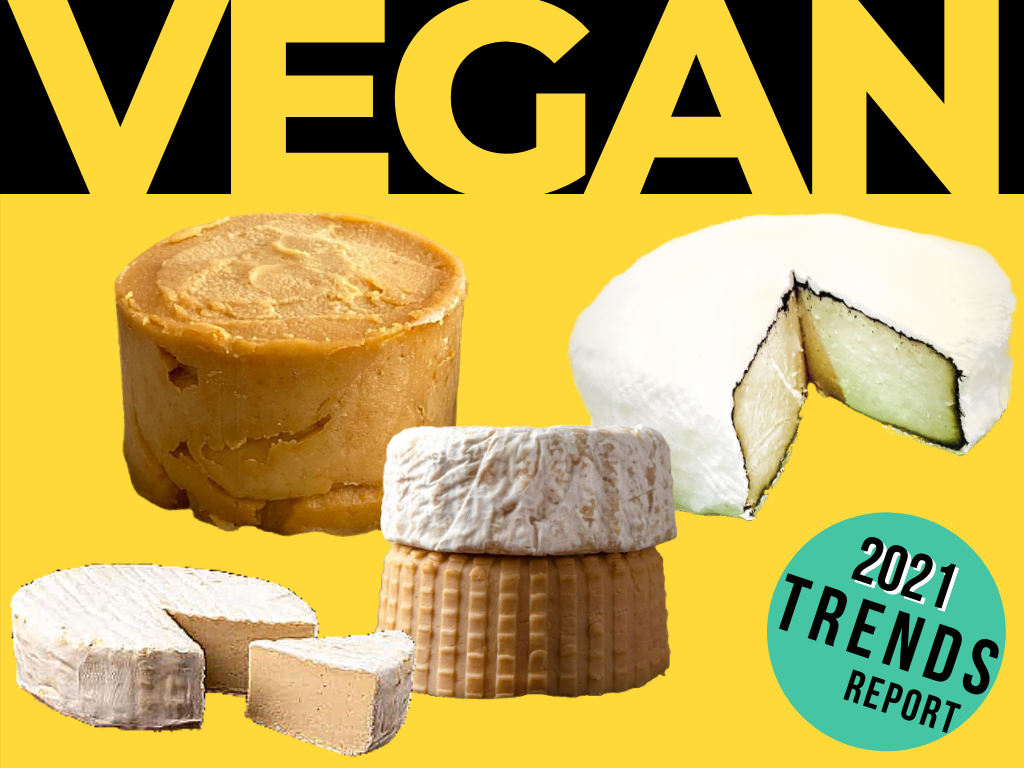
Did you know that there are more than 1,800 types of dairy cheeses in the world? Well, we predict that the plant-based cheese world is about to get a lot more crowded. While there are some incredible widespread brands (hi, Miyoko’s) and lots of interesting artisanal cultured nut cheesemakers (check out our Hong Kong roundup), we’re excited about new startups like U.S. based Grounded Foods, who make vegan cheese from non-GMO hempseeds and ‘ugly’ cauliflower and Australian Hello Friend, whose vegan halloumi is making waves. There’s room in our fridge for dozens of delicious, cruelty-free cheeses and we can’t wait to discover more! Expect to see lots of headlines in this space and more ingredient innovation (i.e. not just nuts).
8) Gaga For Plants: Own Label Vegan Supermarket Ranges Become The Norm
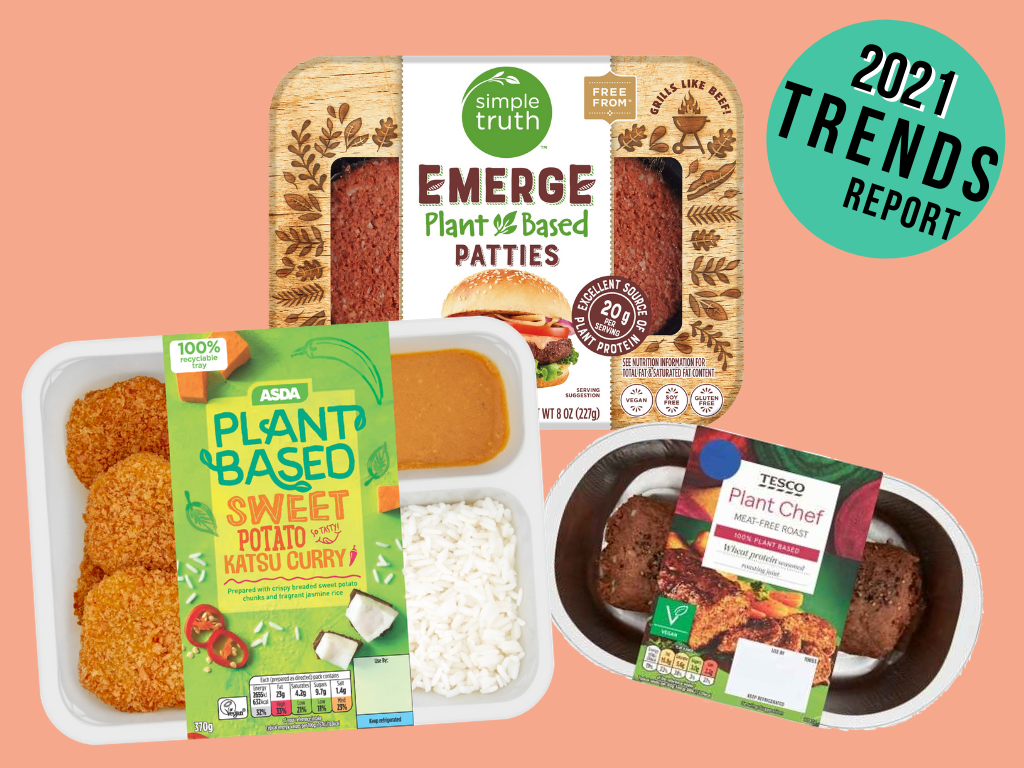
Plant-based consumers have never had so much choice on the market- there are now hundreds of brands out there, it’s getting hard to keep up, and supermarkets want in. Their ‘own-brand-in’, that is. Grocery chains across the planet are launching private label plant-based meat ranges, such as Kroger’s Simple Truth and Target’s Good & Gather in North America (even Walmart is dipping its toes in), competing with existing brands on price and product selection, and giving said brands a run for their cruelty-free money. Nowhere is this more evident than in the U.K., where every major supermarket has dived into the plant-based scene head first: From Tesco’s Plant Chef & Wicked Kitchen (in collab with chef Derek Sarno) to M&S’s Plant Kitchen, ASDA’s Plant Based to Sainsbury’s Love Your Veg, British shoppers have hundreds of choices available to them, making flexitarian lifestyles a cinch. We predict major supermarket chains everywhere will follow suit.
9) The Rise Of Veganic Farming
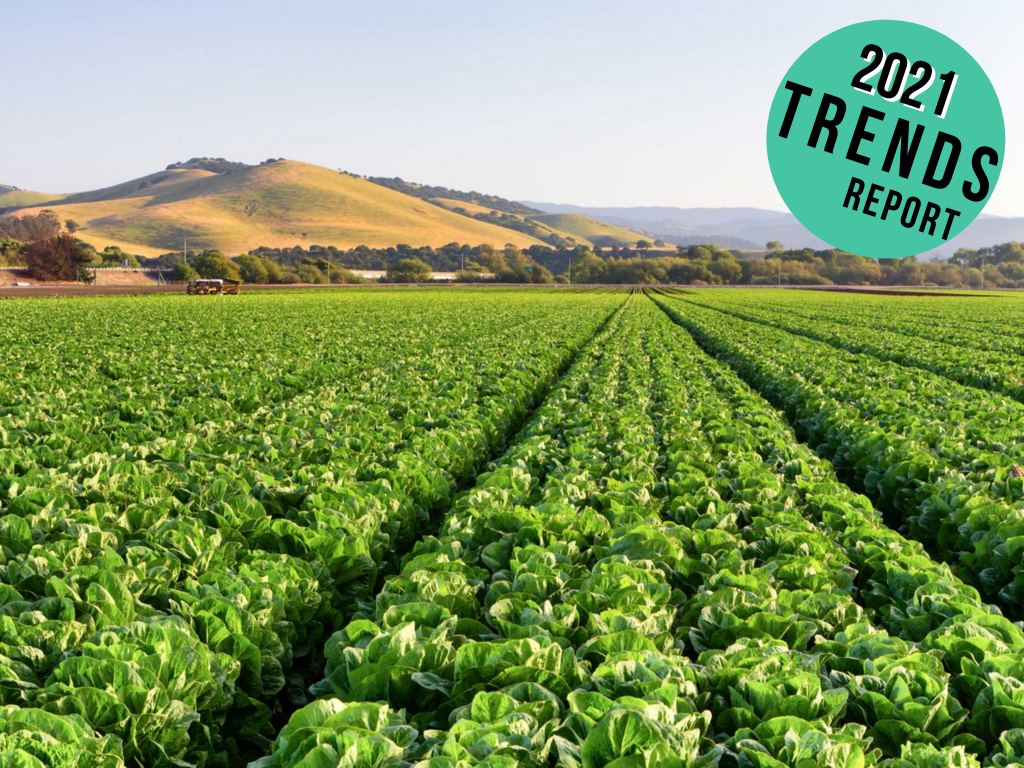
If we’re going to have any chance of dealing with the climate-change-induced food security crisis that threatens to exacerbate poverty, inequality, malnutrition and lifestyle diseases, we’re going to have to reform our agricultural systems, and we’re going to need them to be cruelty-free. Cue veganic farming (also known as plant-based farming, vegan organic farming or stock-free farming), an agricultural approach to growing plant foods that is based on a respect for animals as well as the environment and human health. You may be surprised to learn that organic agriculture permits farmers to use animal-based fertilizers (manure, bone meal, fish emulsion, egg shells)- vegan farming sticks to plant-based options. While most people reading this won’t have heard of veganic farming previously, we predict within a few short years, this plant-only growing philosophy will be as well known as organic farming.
10) Imperial Forces Strike Back: Big Meat’s Revenge
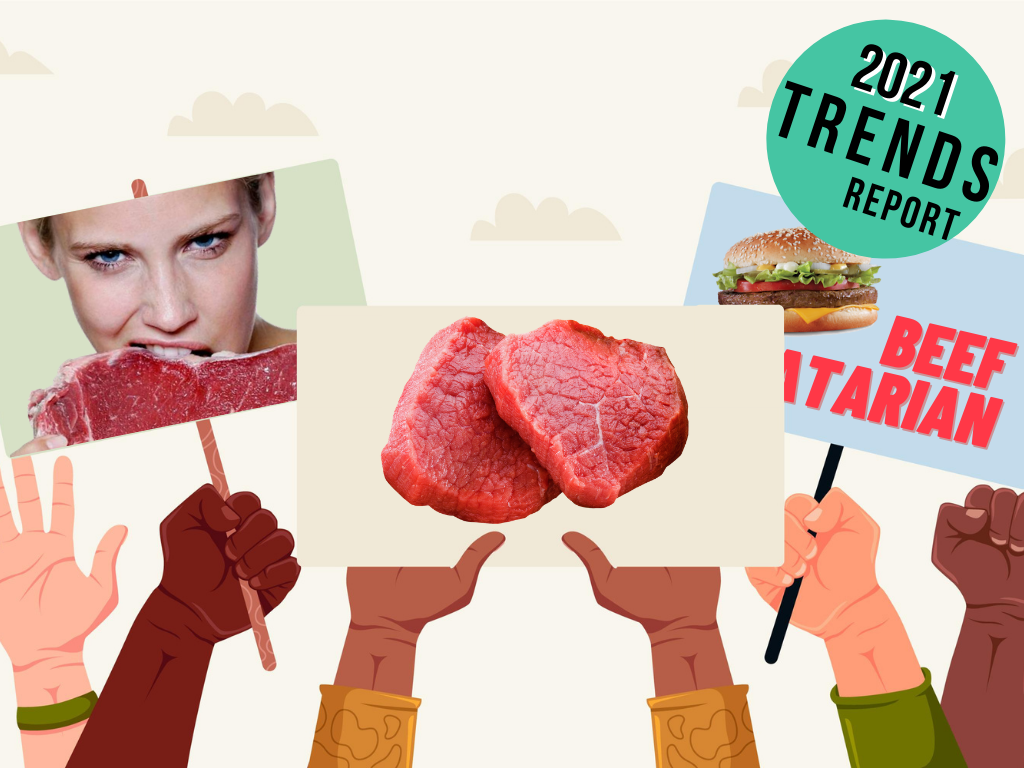
It’s been a fairly un-bumpy road for the plant-based rebel alliance so far. Big Meat (and Big Dairy) have mostly sat on the sidelines, watching the rise of alternatives with disinterest/mild concern. But the industrial Imperial Forces will stay quiet no more. Get ready for Big Meat’s attack. Campaigns like the Beefatarian advert aimed at a European audience are only the beginning. The lobbies behind these trillion dollar industries are going to start fighting back and we better make sure our millennium falcons are ready.
11) Plant-Based Cured Meats: Welcome To The World Of Cruelty-Free Bacon & Ham
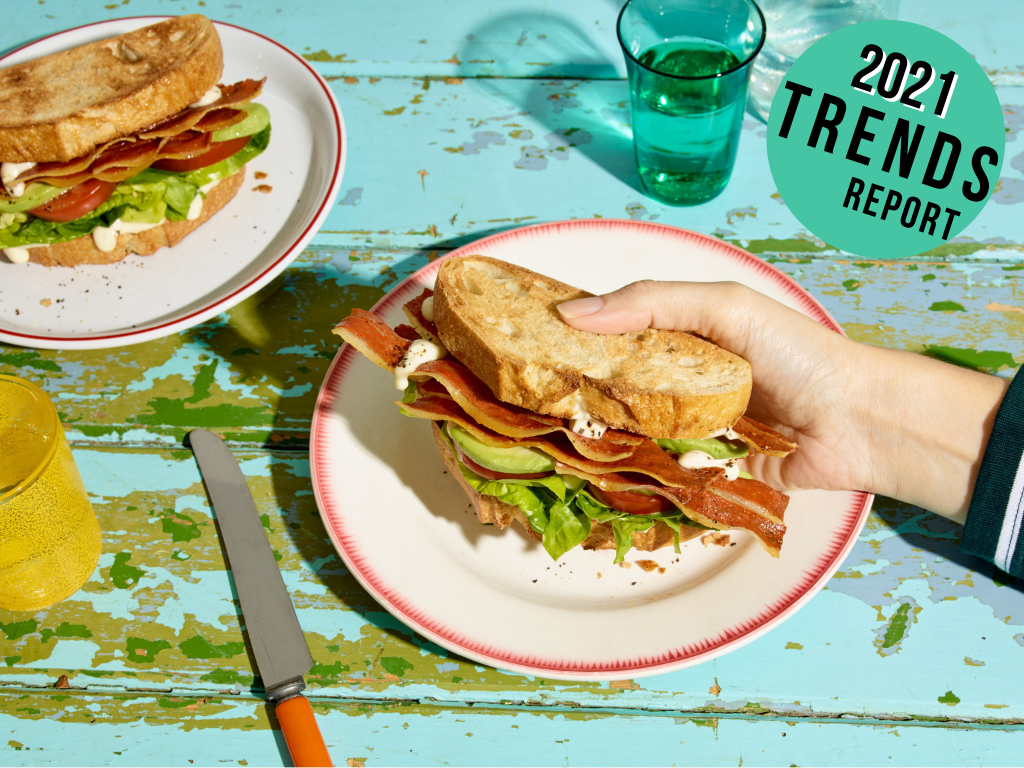
While the world now has more plant-based burgers than we could ever have dreamed of, not to mention a fair few excellent minced pork alternatives led by Green Monday’s pioneering OmniPork and Impossible’s foray into the category, when it comes to cured and smoked meats, things like ham, bacon and deli sausages (chorizo, saucisson, salami), the selection is sorely lacking for us jambon-loving folk. A handful of companies have popped up to address this shortfall including Hooray Foods‘s bacon, Spanish startup Rollito’s vegan jamón, Chile’s Pow Foods’ plant-based chorizo, Paris-based 77 Foods which is pioneering vegan lardons and bacon and California’s Renegade Foods, which has a whole range of plant-based salumi but we’re expecting this space to garner a whole lot more love.
12) See Ya Soy: Diverse Crops & Ingredients Will Have A Moment
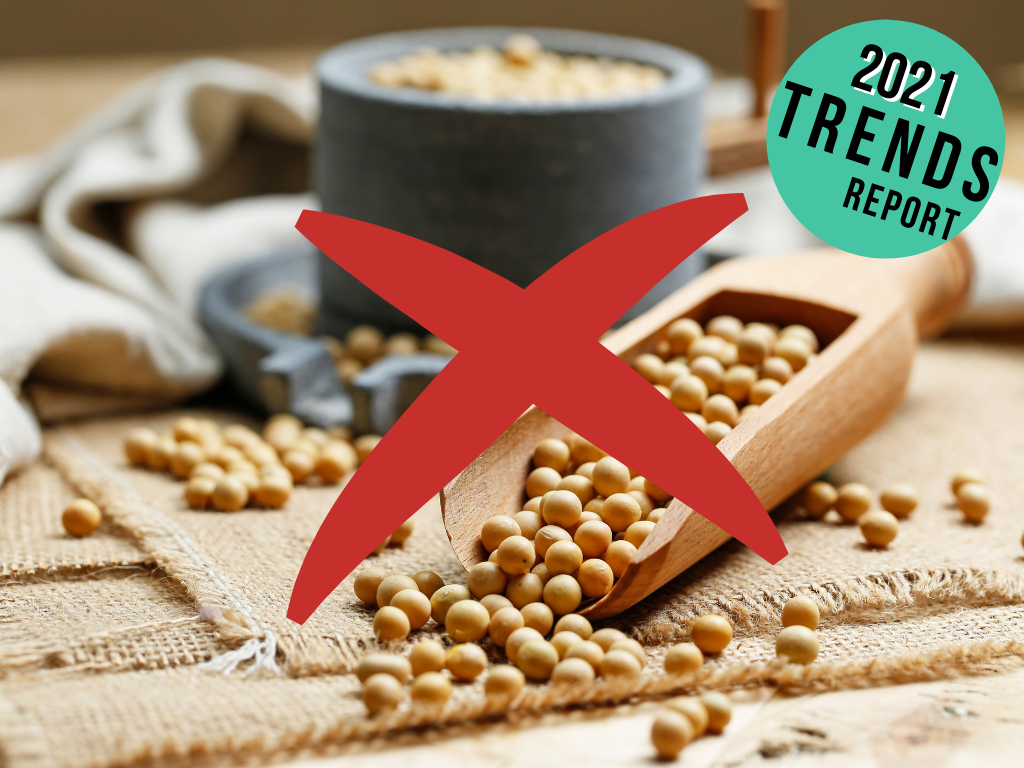
Soya protein is a clear winner on many fronts- it’s a highly scalable option because it’s so plentiful (which is why Impossible bases its products on the bean), it has outstanding protein credentials and it’s got a fairly neutral taste that makes it ideal as a base ingredient. BUT, we can’t put all our protein eggs in one crop basket, so to speak. Crop diversity is a key concern if we’re going to bulwark ourselves against impending food security. We mustn’t fall into the monocrop trap that modern day industrial agriculture embodies. Fortunately, there are a great deal of plants that we have barely scratched the surface on (think konjac, algae, millet) and there are companies out there like WhatIf Foods that are already creating animal food alternatives using untapped resources. More of this, please.
13) Fish-Free Seafood Takes Off
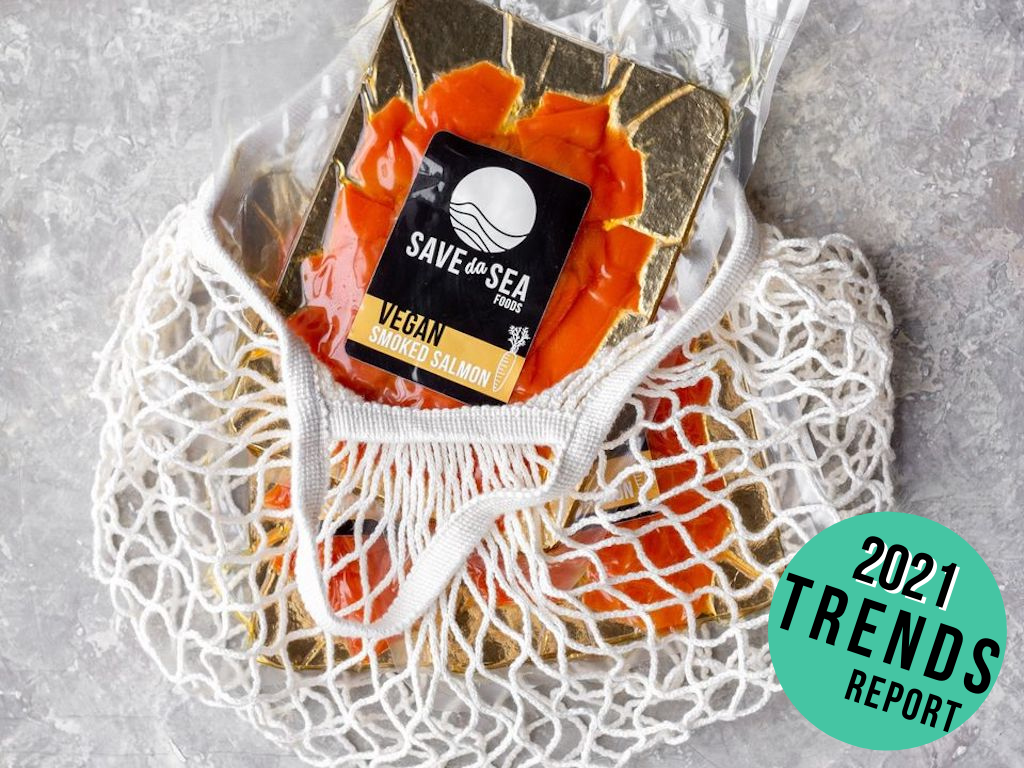
While it’s great that people are reducing their meat consumption, what’s not so great is that they are turning to seafood instead, devastating the world’s remaining fish stocks. We told you last January that seafood as we know it is dead– it’s simply not sustainable to eat fish. So why are there currently less than 30 alternative seafood companies, compared to over 100 plant-based & cultured meat companies? As the plant-based meat space gets more crowded, we predict that plant-based and cultured seafood alternative startups are going to have a moment this year and consumers are going to get a lot more choice.
Lead image created by Green Queen Media.

